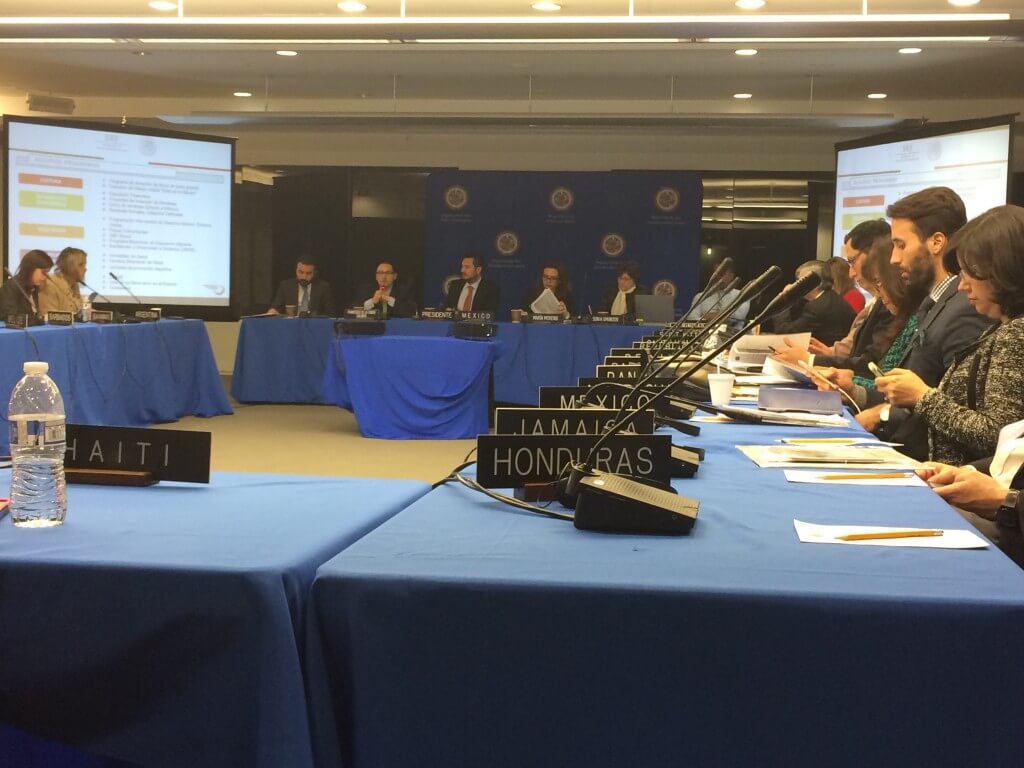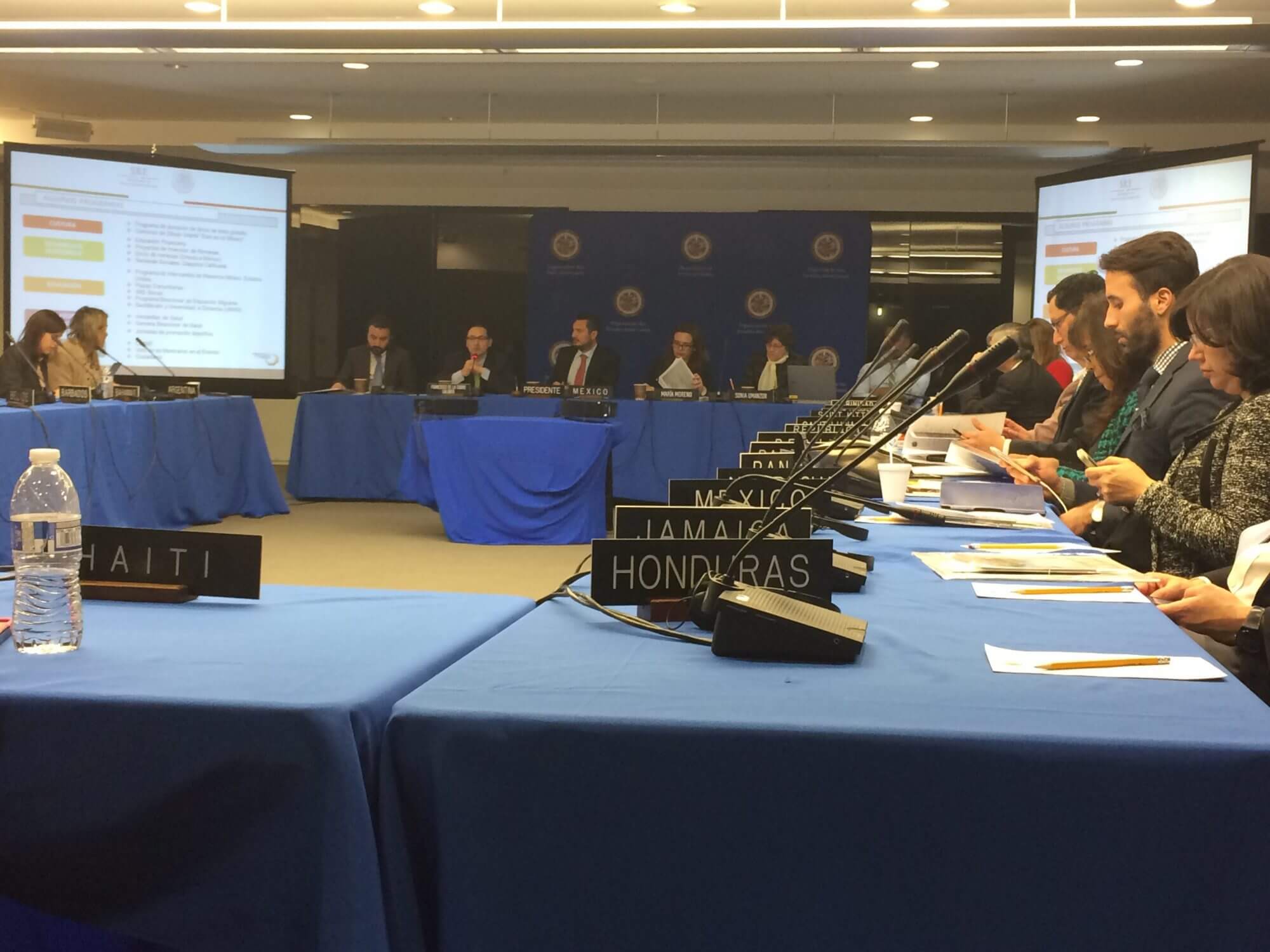
The Organization of American States’ Committee on Migration met Monday to discuss collaboration among American governments to support migrants who return to their countries of origin. (Mariana Alfaro/Medill News Service)
WASHINGTON — Representatives of nations in the Americas debated proposals Monday that would facilitate absentee voting for immigrants and encourage governments to offer dual citizenship.
Maria Moreno, a representative of the International Organization for Migration, said during a meeting with the Organization of American States’ Committee on Migration that there are about one billion migrants worldwide.
The economic value of immigration has a huge impact, she said, with remittances — money sent by migrants back to their place of origin– exceeding $600 billion last year.
This is why, she said, her organization works to increase out-of-country voting rights.
However, Cristobal Fernandez, member of the Organization of American States’ department of electoral cooperation and observation, said implementing out-of-country voting rights would be expensive and complicated.
Voting security – protecting the integrity of the vote – could be a problem, he said.
“Behaviors are different … and it can end up being a grave political problem if someone threatens the electoral process,” he said.
Francisco de la Torre Galindo, executive director of the Institute of Mexicans Abroad, emphasized the importance of remittances to the economies of countries like Mexico and El Salvador. Though it has gotten easier to send and receive remittances, he said, the institute wants to make the process smoother.
De la Torre Galindo said his institute is working to make it easier for Mexicans living in the United States to get the national identification necessary to vote in presidential elections in Mexico. Currently Mexicans must get these IDs in Mexico, meaning those who are unable to leave the U.S. will not have the chance to vote.
“This will enhance the democratic process, allowing Mexicans to vote from the exterior,” De la Torre Galindo said.
But his office is encouraging eligible Mexicans living in the U.S. to get American citizenship, he said, allowing them access to better benefits and rights.
Sonia Umanzor, co-founder of the D.C. Clinica del Pueblo and health counselor at the Salvadoran embassy, said it is important that Salvadorans living in the U.S. are seen as more than just remittance providers and have the same rights as friends and relatives living in El Salvador. That is why Salvadoran consulates are working to make it easier for them to get dual citizenship and receive Salvadoran passports and IDs.
She said some children grow up unsure of their nationality, being children of immigrants, but born in the U.S.
“It is so important for us that children born and raised in the U.S. can feel like they belong somewhere,” she said. “Our constitution permits the right to double citizenship, which is why we encourage our U.S.-born communities to register and receive their passport and national identification.”
Umanzor, a nurse who came into the U.S. as an undocumented immigrant, said she knows what it feels like to be unable to qualify for any health benefits. She wants better collaboration to enhance free health services for undocumented immigrants.


